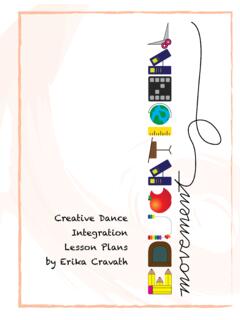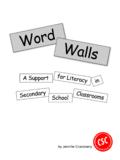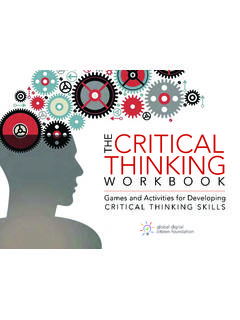Transcription of Using Games as a Tool in Teaching Vocabulary to Young ... - …
1 English Language Teaching ; Vol. 9, No. 7; 2016 ISSN 1916-4742 E-ISSN 1916-4750 Published by Canadian Center of Science and Education 120 Using Games as a tool in Teaching Vocabulary to Young Learners Sahar Ameer Bakhsh1 1 English Language Institute, King Abdul Aziz University, Jeddah, Saudi Arabia Correspondence: Sahar Ameer Bakhsh, English Language Institute, King Abdul Aziz University, Jeddah, Box 42890, Saudi Arabia. E-mail: Received: January 15, 2016 Accepted: April 29, 2016 Online Published: May 16, 2016 doi: URL: Abstract Over the last few decades, Teaching English become a phenomenon in Saudi Arabia, especially to Young learners. English is taught as a main subject in kindergarten and elementary schools. Like any other children, Saudis accept new foreign languages easily, but they get bored very fast if the teacher is Teaching them Using the old conventional methods and techniques.
2 The aim of this paper is to prove that Games are effective tools when devised to explain vocabularies and they make it easier to remember their meanings. This paper deals with a literature review of Teaching English Vocabulary to Young learners Using Games . Then it discusses the importance of Using Games in Teaching Vocabulary and in what way Using them is helpful. After that it investigates the practical implications of Using Games to teach Vocabulary that includes the implementation of Vocabulary Games and some examples of Games that could be used to teach Vocabulary to children. And finally it examines challenges teachers face when Teaching Vocabulary Using Games to Young learners. Keywords: Young learners, Games , Vocabulary , practical challenges, practical implications 1.
3 Introduction Over the last few decades, Teaching English become a phenomenon in Saudi Arabia, especially to Young learners. English is taught as a main subject in kindergarten and elementary schools. Like any other children, Saudis accept new foreign languages easily, but they get bored very fast if the teacher is Teaching them Using the old conventional methods and techniques. Teachers are responsible for finding out interesting and attractive ways to teach and motivate their students . According to Harmer (2008), teachers of Young learners should spend plenty of time examining and understanding how their students operate and think. Teaching Young learners is very difficult compared with Teaching teenagers or adults because Young learners get distracted very fast. Children love to have fun and play, so teachers should choose suitable Teaching methods that cater to children s nature.
4 Games are one of the methods that could be used in order to avoid boredom in the classroom. They have a special role in any foreign language Teaching . Both students and teachers will benefit from including Games during class time. Furthermore, teachers may achieve all the educational outcomes through applying the use of Games especially when Teaching Vocabulary . Although language structure is considered the skeleton of the language, it agreed that Vocabulary is the vital organs and flesh (Harmer, 1991). Vocabulary is the basic part and a key element to learn any language. Teaching Vocabulary through the use of Games has become crucially important for English language learners because they sustain enjoyment and interest in learning and encourage Using the language in a fearless and creative manner.
5 This paper is divided into four parts. The first part deals with a literature review of Teaching English Vocabulary to Young learners Using Games . The second part discusses the importance of Using Games in Teaching Vocabulary and in what way Using them is helpful. The third part investigates the practical implications of Using Games to teach Vocabulary that includes the implementation of Vocabulary Games and some examples of Games that could be used to teach Vocabulary to children. The fourth part examines challenges teachers face when Teaching Vocabulary Using Games to Young learners. The main reason for choosing this topic is personal interest. Having a son, nieces, and nephews in the elementary level sparked my interest in finding fun and interesting ways to teach them Vocabulary . Games proved to be an effective tool when devised to explain vocabularies and they make it easier to remember their meanings.
6 English Language Teaching Vol. 9, No. 7; 2016 121 2. Literature Review Teaching Young Learners In the following section, Young learners will be defined and factors that might influence their maturity will be briefly mentioned. Characteristics of Young learners and some points to be consider when Teaching Young learners will be discussed as well. After that, Teaching English to Young learners and the reasons for Teaching the language at elementary level will be mentioned. Who Are Young Learners? Young learners are agreed to be children from five or six years old who are in the first year of elementary schooling to twelve years old of age. However, the age of children is not necessarily an indicator of how mature they are. Philips (1993) stated that there are several factors influencing the maturity of children.
7 These factors include their culture, sex, environment (city or rural), and parents. Also, their development should be taken into consideration. Some children develop very fast, and others might need more time. A good teacher of Young learners should be aware of all their differences because understanding them can help teachers deciding on activities to be used in their Teaching processes. In other words, teachers decision must be influenced by his or her knowledge of the children s attitudes, interests, and circumstances instead of their physical age. The focus in this essay is on children ageing from five to seven years old who are considered to be at the beginner level of schooling. According to Halliwell (1992), Young learners posses good meaning interpretation skills without understanding the actual meaning of individual words.
8 They use the limited Vocabulary they know creatively and learn indirectly, as opposed to directly. In addition, their imagination is always ready. They take great pleasure and delight creating fun in what they do and say. Yetenberg (1990) characterized Young learners as having some problems distinguishing the real world from an imaginary one that could make it difficult for their teacher to understand their reality perception and cope with it. Young learners do not like to work alone, but to be accompanied by others especially when playing or working. They use their language skills before they are aware of them. Also, they learn by Using body movement, mimics, and gestures. Furthermore, children have a very short attention span, so teachers need to keep this in mind when designing and choosing activities for their Young students to be engaged in.
9 It is imperative to praise Young learners because they become motivated when their teacher support their enthusiasm. Phillips (1993) assumed that younger children are going to be holistic learners if they are taught in a very Young age. They respond to the meaning that underlie the language used without worrying about individual words or sentences. When Teaching Young learners, Philips stressed that teachers should simplify the activities for them to understand what the teacher expects from them. The tasks teachers choose must be amusing in away that Young learners could easily reach the goals set for them. Also, the tasks must be motivating and stimulating so that Young learners could feel satisfied with what they have done. Furthermore, Slattery (2001) highlighted some characteristics Young learners have.
10 They are learners who are curious, imaginative, and playful. They develop as individuals very quickly and enjoy routines and repetitions. The learn by listening, imitating, watching, and doing things. Due to their short attention span, they need variety of activities. Also, they talk about what they did and understand in their mother tongue which helps them to learn. Teaching English to Young Learners In order for children to acquire English, they have to experience and hear the language when they are small. In general, it is agreed upon that they learn languages better than adults because children have more time for learning, and do not have any worries or responsibilities. Also, they are better at learning any language when they are exposed to it naturally for a long-term.














